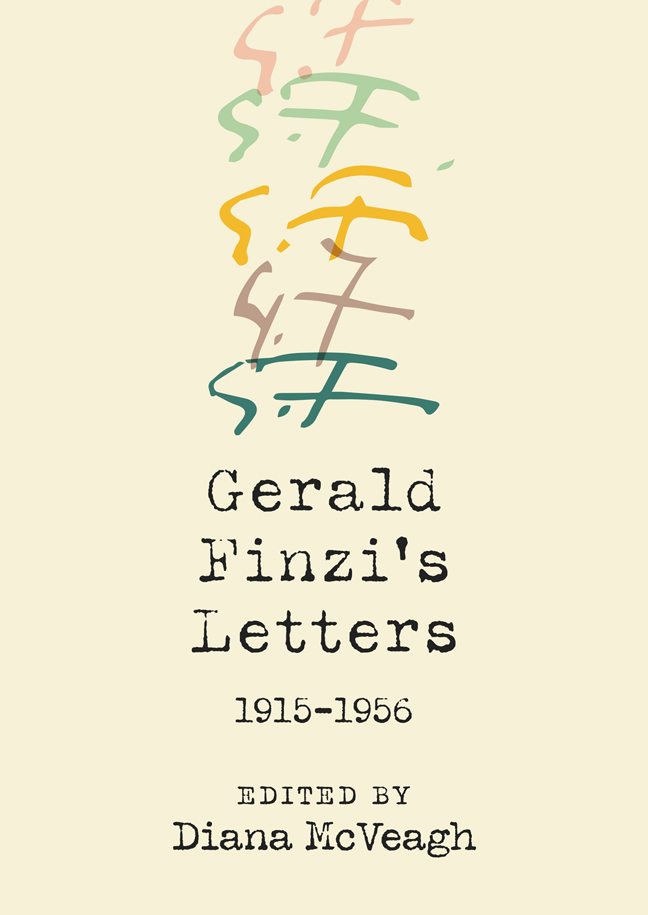Book contents
- Frontmatter
- Dedication
- Contents
- Illustrations
- Correspondents
- Editorial Conventions
- Acknowledgements
- Chronology
- Abbreviations
- Prologue
- 1 A Young Man's Exhortation, 1915–1933
- 2 Haste on my Joys! 1933–1939
- 3 Oh Fair to See, 1939–1941
- 4 Channel Firing, 1941–1945
- 5 Sing Out Cecilia's Name, 1945–1951
- 6 The Too Short Time, 1951–1956
- Epilogue
- Finzi's Circle
- Select Bibliography
- Index of Finzi's Compositions
- Index of Names
5 - Sing Out Cecilia's Name, 1945–1951
Published online by Cambridge University Press: 15 February 2024
- Frontmatter
- Dedication
- Contents
- Illustrations
- Correspondents
- Editorial Conventions
- Acknowledgements
- Chronology
- Abbreviations
- Prologue
- 1 A Young Man's Exhortation, 1915–1933
- 2 Haste on my Joys! 1933–1939
- 3 Oh Fair to See, 1939–1941
- 4 Channel Firing, 1941–1945
- 5 Sing Out Cecilia's Name, 1945–1951
- 6 The Too Short Time, 1951–1956
- Epilogue
- Finzi's Circle
- Select Bibliography
- Index of Finzi's Compositions
- Index of Names
Summary
842 To Robin Milford, [May 1945]
Ashmansworth
I wish I cd congratulate you first hand, rather than second hand! But all I have to go on is Nigel, who thought it ‘the loveliest thing he had ever seen’ (it was his first ballet & we read him the ‘Jackdaw’ before) & Joy, who was enchanted with it & made me wish all the more that I cd have been there. Oh, do try & get another performance.
Love to Kirstie.
Gerald
843 From Robin Milford, 24 May 1945
The Way House, Hermitage
Dear Gerald,
It was nice to get your card (funnily enough I was just thinking of you when it arrived, & of whether we shd still have the energy to struggle to Ashmansworth sometimes, & so of your song, ‘We shall, I say; but who may sing of what another moon will bring!’ – trying to remember the exact words) & I am v. glad to have both Joyce's & Nigel's appreciation; I do not think a child's views are at all necessarily to be discounted; actually I learnt more from Barnaby than from any other single person, & if Wordsworth's idea of ‘trailing clouds of glory’ & the general idea of the completed circle (hoping that the roaring forties are somewhere at the extremist point – anyhow they often feel like it!) is merely sentimental, well then – I am a mere sentimentalist. […]
Robin
Looking forward to seeing you & Orch. at D[owne] H[ouse].
P. A. Browne of the Board of Education, Newcastle, had written suggesting possible influences on ‘Dies Natalis’.
844 To P. A. Browne, 19 June 1945
Ashmansworth
Dear Mr Browne,
Of course you are right. It had never occurred to me either, that I had quoted from the Enigma Variations in the ‘Salutation’! (nor had the Brahms connection occurred to me until you pointed it out).
Much as I admire the Variations the dropping sevenths were designed as a counterpoint against the Ritornello tune & had no other purpose. Dies was written a long time ago & I can quite see some Elgarian influences. Possibly they have not been fully assimilated, though I don't feel this to be the case.
- Type
- Chapter
- Information
- Gerald Finzi's Letters, 1915-1956 , pp. 547 - 764Publisher: Boydell & BrewerPrint publication year: 2021



